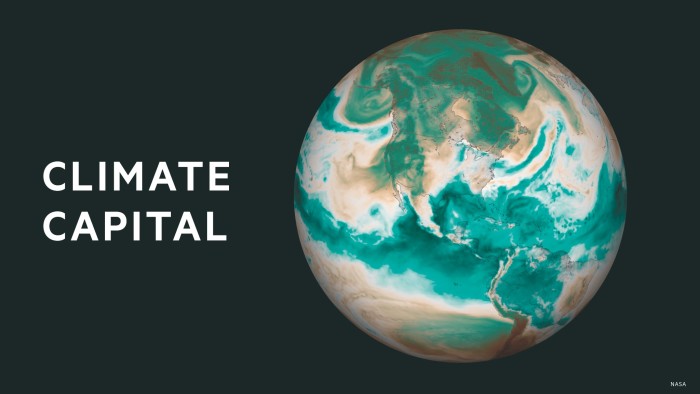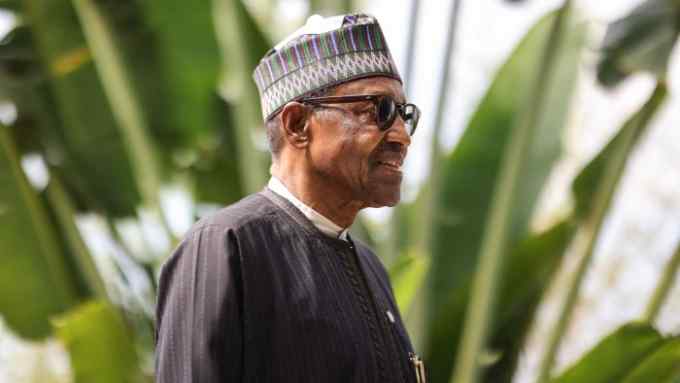Developing countries fight for their right to fuel growth

Simply sign up to the Energy sector myFT Digest -- delivered directly to your inbox.
The global fight against climate change has provoked a fierce debate over the development of new oil and gas projects in poorer nations.
Should these countries be allowed to use fossil-fuel power plants to improve their energy provision and drive economic growth, given they have contributed so little to carbon emissions historically? Or must they cut emissions as much as the long-industrialised, most polluting states?
Nowhere is this argument more vigorously contested than in Africa, where the continent’s 1.4bn people are the most exposed to the effects of the climate crisis, yet 43 per cent of them — approximately 600mn— still lack access to electricity.
“Don’t tell Africans they can’t use their own resources,” wrote Nigerian president Muhammadu Buhari ahead of the COP27 climate meeting that concluded in Egypt this month.
“We are not the problem,” he said, arguing that, if Africa were to use all of its known reserves of natural gas, the continent’s share of global emissions would still only rise from 3 per cent to 3.5 per cent.
And, whether by design or not, COP27’s climate negotiators responded to the Nigerian leader’s call.
After days of fraught negotiations, almost 200 countries agreed to set up a fund to help “vulnerable” nations suffering from climate change — but they did not reach a deal on phasing down the use of all fossil fuels, following strong opposition from some countries, including Saudi Arabia and Russia.
Climate Capital

Where climate change meets business, markets and politics. Explore the FT’s coverage here.
Are you curious about the FT’s environmental sustainability commitments? Find out more about our science-based targets here
However, while this pledged financial support was welcomed, analysts noted that it leaves developing countries no closer to building the energy systems they will need to lift people out of poverty in a decarbonising world.
Valérie Marcel, an energy expert at Chatham House, a think-tank, says there should be room in the global carbon budget to allow poorer countries to develop fossil-fuel assets, if doing so will help provide them with much-needed energy and revenue.
She heads the New Producers Group, a project to share knowledge between 30 emerging oil and gas producers. Those emerging countries include Uganda, which aims to export oil for the first time in 2025 via a contentious pipeline being developed by France’s TotalEnergies.
Marcel argues that long-term polluters have no right to tell Uganda not to sell, or use, its oil.
“For a country that is really low-income, that has significant energy gaps, that actually has a pretty high rate of renewables in its energy mix as it is . . . I think it’s a bit rich to say that Uganda should keep it in the ground to leave room in the carbon budget for highly polluting industrialised countries to do what they’ve been doing for decades,” she says.
In fact, it would make more sense, she adds, to stop oil production in countries with ageing fields — such as Russia, Algeria, Canada and the US — and allow it to start in poorer countries that have not yet benefited from their resources.
Marcel advises new producer countries to ensure that their projects have the lowest possible emissions’ profile — to give them a “longer lifespan” — and to prepare for a future when oil and gas production will have to cease altogether. “This is a one-time opportunity so [countries] have to be very strategic about how to use these revenues,” she explains.
But Kingsmill Bond, an energy strategist at clean energy non-profit group RMI, disagrees. He argues that any focus on developing oil and gas is a distraction that ignores the realities of the climate crisis and the opportunity presented to the global south by the energy transition.
He points out that Africa produces only 6 per cent of global fossil fuels from 4 per cent of global reserves, but has access to 39 per cent of global renewable energy potential.
The cost of generating solar power has dropped by 89 per cent in the past decade and is still falling, making it cheaper already than fossil fuel-generated electricity, according to RMI’s research.
Consequently, the focus of the COP27 negotiators on preserving their countries’ rights to develop oil and gas resources was a missed opportunity, Bond suggests. “We are asking the wrong question,” he says. “We suddenly have this new [solar energy] resource. We should be figuring out how to use it, not how can we possibly maintain the old system, which doesn’t work any more.”
He sees better financing as a way to do that. Development banks currently lend $25bn a year to middle- and low-income countries, and help to mobilise a further $10bn in private finance.
Increasing that to $140bn a year in lending is feasible by 2030, which could, in turn, mobilise a further $270bn in private funding, according to RMI.
“Development banks need to be taking more risks,” Bond says. “There needs to be a great bargain between people on the ground, who want energy, and people from wealthy countries, who may be able to provide capital.”

Comments